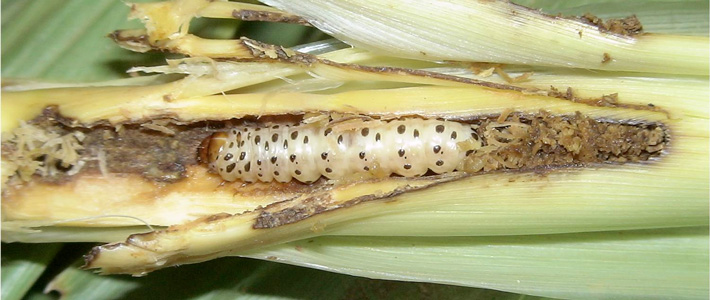
Pests in Brazil are becoming resistant to Bt maize 1507 only three years after market approval, shows an industry-sponsored study
 The study referred to in the article below, Field-evolved resistance to Cry1F maize by Spodoptera frugiperda (Lepidoptera: Noctuidae) in Brazil, is here:
The study referred to in the article below, Field-evolved resistance to Cry1F maize by Spodoptera frugiperda (Lepidoptera: Noctuidae) in Brazil, is here:
http://www.sciencedirect.com/science/article/pii/S026121941400204X
A graphic map of pest resistance is here:
http://www.testbiotech.org/sites/default/files/bt_resistance_2014_0.jpg
Brazil: Pest resistance to Bt maize 1507 in third year of cultivation
Testbiotech, 23 July 2014
http://testbiotech.de/en/node/1076
Genetically engineered maize 1507 may soon be approved for cultivation in the European Union. This maize event was developed by US companies Pioneer/DuPont and Dow. Maize 1507 is a so-called Bt crop that produces an insecticidal protein. The plants are also tolerant to herbicides with the active ingredient glufosinate.
According to a study published in the journal Crop Protection, it has now been shown for the first time that certain pests in Brazil are becoming resistant to this maize line only few years after market approval. Farias et al. (2014) found resistant populations of fall armyworm (Spodoptera frugiperda), in the federal states Bahia and Rio Grande del Sul. Fall armyworm is the most important maize pest in Brazil. The publication was supported by Dow.
According to the authors, development of resistance in fall armyworm was first noticed in 2012, the third year after the start of cultivation of maize 1507 in Brazil.
From a scientific point of view, resistance in Spodoptera frugiperda doesn't come as a surprise. Studies conducted in Puerto Rico had already shown in 2008 that this pest insect had acquired resistance after few years of cultivation. As a consequence of these findings, industry withdrew maize 1507 from the market in Puerto Rico.
The case of Brazil is an example for an overall trend showing that nearly twenty years after the start of commercialisation of Bt crops, there are problems in several countries growing this kind of genetically engineered crop (see figure "Bt crops: Resistance development in pest insects", http://www.testbiotech.org/en/node/1077). Industry tries to tackle this issue by commercialisation of so called "stacked events" that produce several different Bt toxins. The best known example is Monsanto's SmartStax maize that produces six different Bt toxins.
The European Food Safety Agency EFSA first issued a favourable opinion regarding cultivation of maize 1507 in 2005. Because the EU Commission failed to approve maize 1507, Pioneer brought the Commission before the European Court of Justice. The court ruled in 2013 that the Commission must come to a final decision on cultivation soon.
Testbiotech is demanding a stop of the approval process for maize 1507, especially because there are fundamental data gaps in risk assessment.









